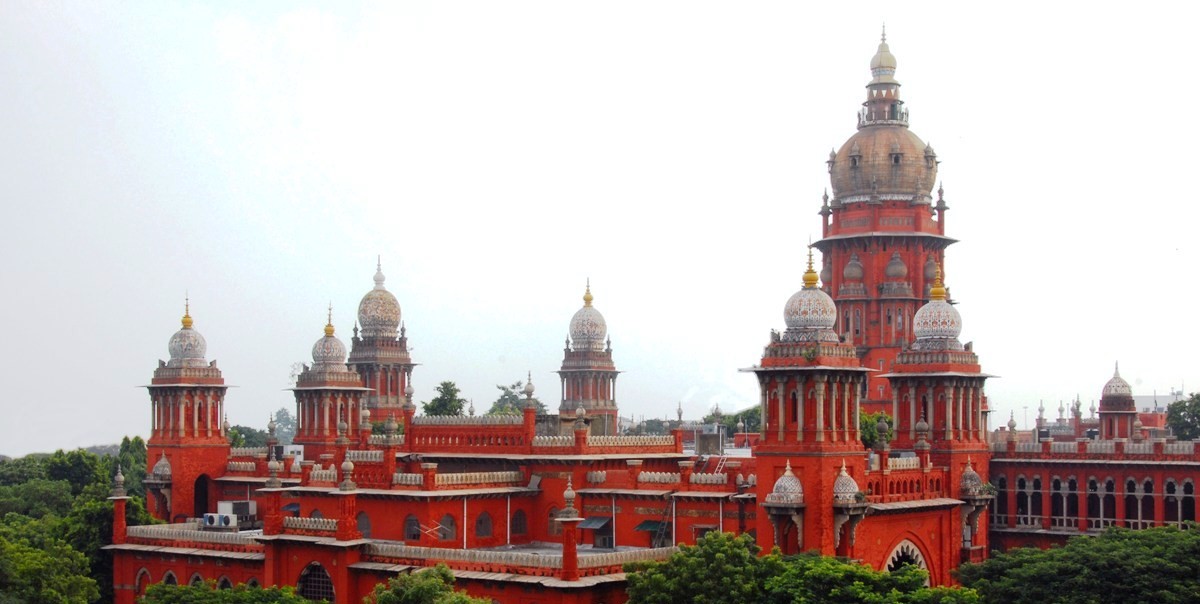A woman lawyer and a law student also personally testified that they had been subjected to brutal police attack.
Published Sep 09, 2025 | 3:41 PM ⚊ Updated Sep 09, 2025 | 3:41 PM

Madras High Court. (Wikimedia)
Synopsis: On 9 September, the Madras High Court stayed its 2 September order appointing a commission to probe alleged police excess during the 13 August conservancy workers’ protest in Chennai. The stay followed a plea by the Greater Chennai Police. The earlier order, based on a habeas corpus petition, alleged police assault on lawyers aiding the protesters.
Madras High Court on Tuesday, 9 September, put on hold its earlier interim order (dated 2 September) that had appointed a commission to look into allegations of police excess during the Chennai conservancy workers’ protest at Ripon Buildings on 13 August.
The stay was issued by a Division Bench of Justices J. Nisha Banu and S. Sounthar, after hearing a plea from the Greater Chennai Commissioner of Police.
The plea, argued by Additional Advocate General J. Ravindran, sought to overturn the interim order passed by another Bench comprising Justices M.S. Ramesh and V. Lakshminarayanan.
Since Justice Banu’s Bench is currently handling habeas corpus petitions, the plea to vacate the order came up before it.
The previous Bench had acted on a habeas corpus petition filed by advocate S. Vijay, who challenged the arrest of lawyers assisting the protesting conservancy workers.
While passing the earlier order, that Bench had noted that police are permitted to arrest only for legal violations and cannot resort to assault.
It therefore appointed retired High Court judge V. Parthiban as a one-man commission to probe whether lawyers and law students were assaulted after being taken into custody.
The commission was deemed necessary as both the police and the legal fraternity had accused each other of unlawful conduct during the late-night crackdown on the intervening night of 13-14 August.
The petition before the court alleged that police had targeted a group of lawyers and law students offering legal aid to the workers, assaulting them on the suspicion that they were fuelling the protest.
A woman lawyer and a law student also personally testified that they had been subjected to brutal police attack.
As many as 1,953 workers from zones 5 (Royapuram) and 6 (Thiru Vi Ka Nagar) began their protest after the Corporation announced that they would have to work under private concessionaires.
The high court, on 13 August, ordered the eviction of the protesting workers following a petition by a Chennai resident, D Thenmozhi, who alleged that public peace was being disturbed. The court cited disruption of vehicular traffic and asked the workers to shift their protest from Ripon Building, the GCC headquarters, to an officially designated site.
The protesters, many of whom had worked for over a decade, said they were relieved of duty after the handover of waste management to private agencies on 1 August.
They demanded that the GCC cancel its outsourcing plan and reinstate their services.
Workers, who protested under the National Urban Livelihoods Mission banner, said they were previously earning around ₹23,000 per month. They feared that under the new private contractor system, salaries would fall to around ₹13,000–15,000, which they said would not cover basic expenses.
They also feared that the deductions might be made from their pay in the name of benefits, further reducing their take-home salary.
(Edited by Sumavarsha, with inputs from Veni EN)
